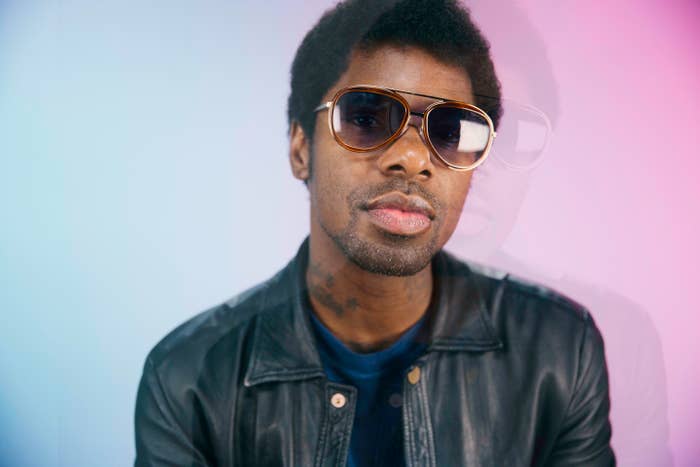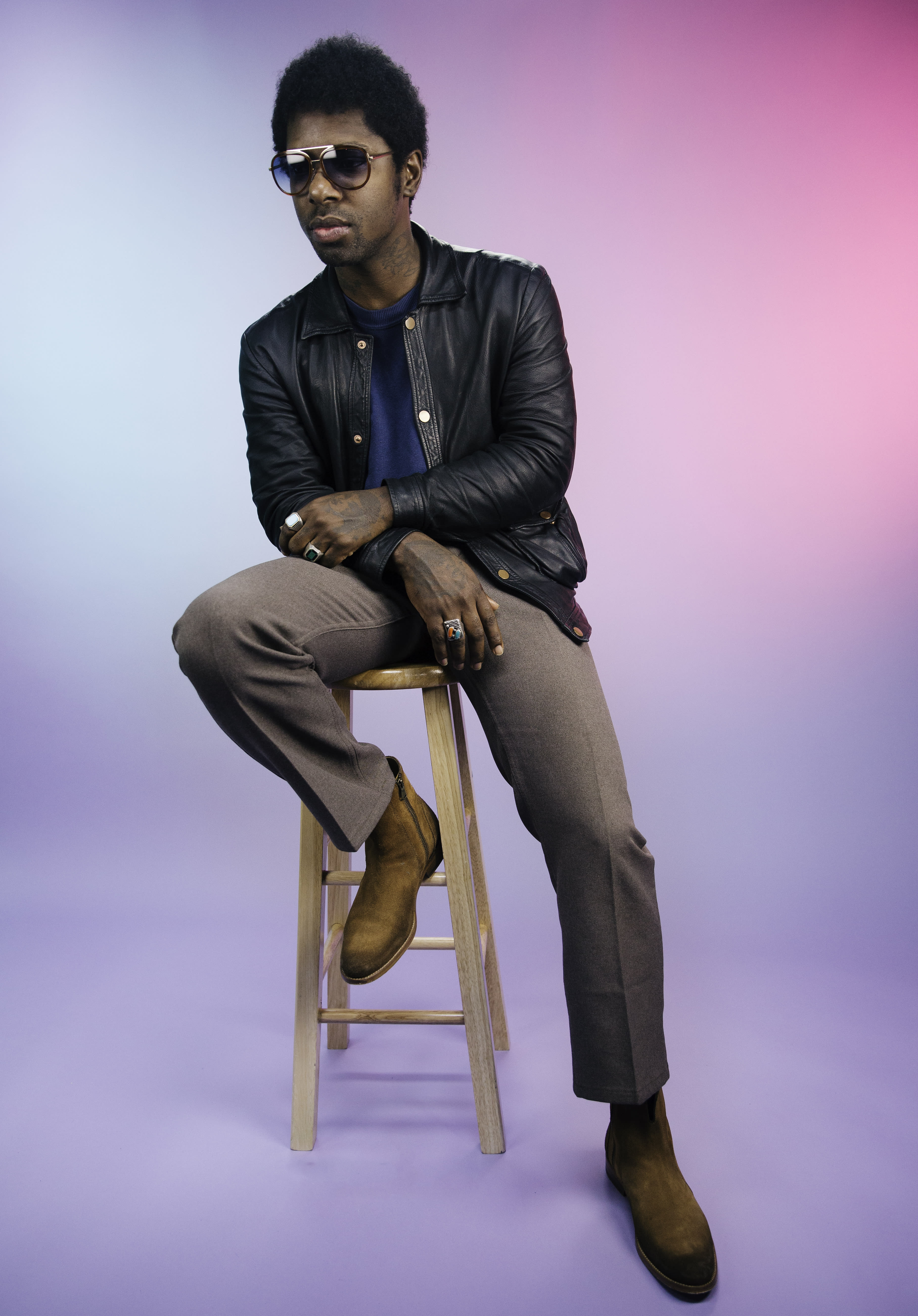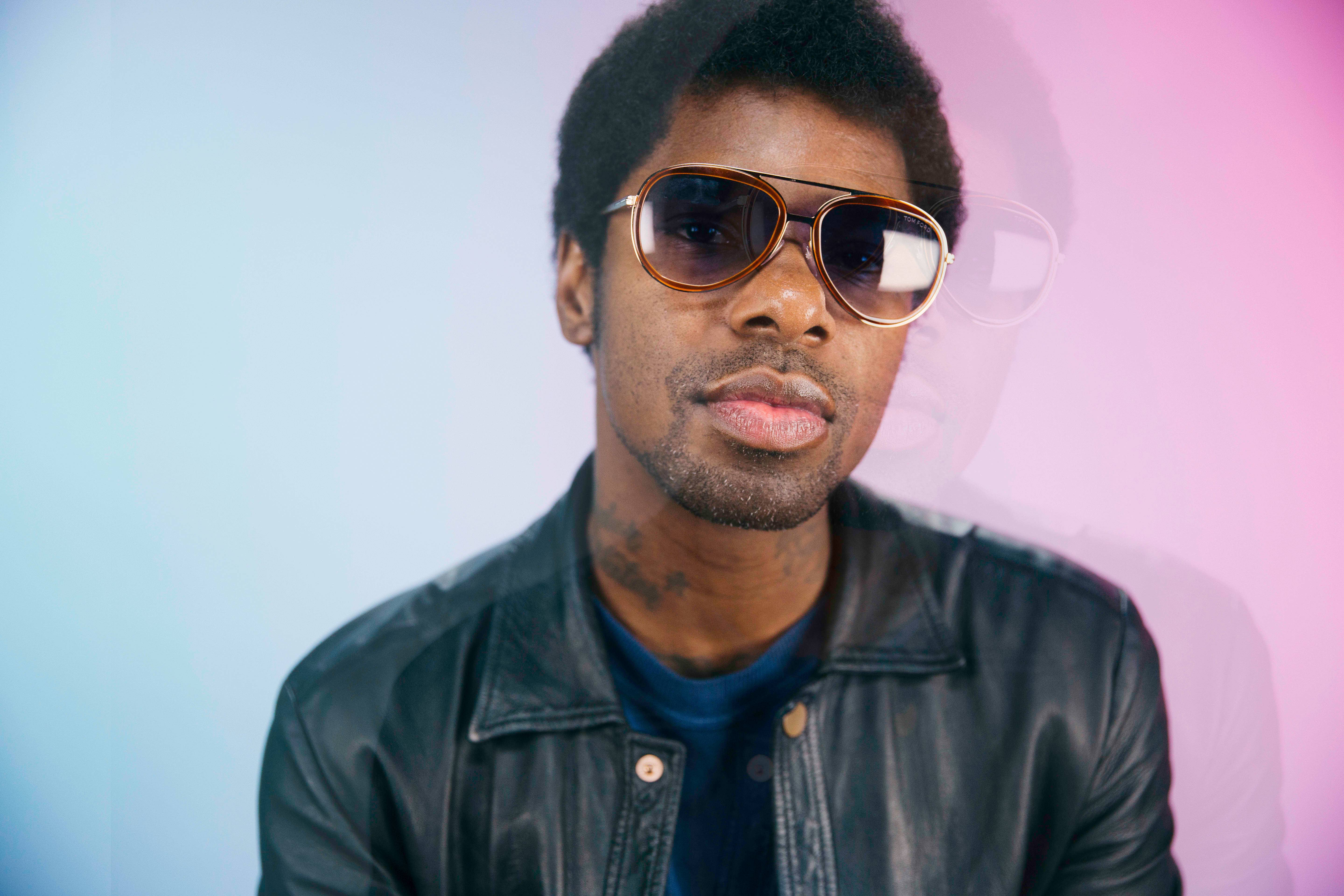
Curtis Harding has been connected to music his entire life. Raised by a father born in 1930 and a mother that was heavily involved in the church, his musical journey began with gospel. He eventually got into hip-hop, garage rock, and back-up singing for CeeLo Green before finally landing on the soulful sounds he delivers today. The latest stop on this journey is Harding’s new album Face Your Fear.
At its heart, the album is vintage, classic soul music, but his eclectic background comes through in psychedelic splashes and a touch of garage rock fuzz. Unlike so many other artists who fuse genres and pull from wide-spanning backgrounds, nothing seems forced or out of place. It's all easy to take in, and that's one of the goals because at the end of the day, Curtis Harding thinks everyone needs to chill out and listen to some soul music.
So tell me your story, give me some background on how you started and where you’re at now.
My story is one that started a long time ago. My mom’s a gospel singer, she took us around. I was born in Saginaw, Michigan. My mom is from Philadelphia, Mississippi by way of Mobile, Alabama. My dad’s from Tennessee. My dad moved to Michigan to work in a plant, that’s where he met my mom. My dad is 88 years old, born in the 1930s, he is 27 years older than my mom. I was born in Saginaw, Michigan and at the age of three, I moved to Alabama. My mother was part of the church, an evangelical sector that was originally people that came from Sweden or whatever to America—they were like pilgrims, you know? My mother was involved in all that, and that’s why they got into church playing.
I wanted to be an old man when I was kid. I wasn’t trying to be like my peers, I wanted to be an old dude.
It’s pretty trippy man, cause I have Amish friends, I have all kinds of friends, all over the country. But it’s crazy because that’s how I got started, going church to church, just singing. My sister, when she got older in high school, she started rapping and formed a rap group and that’s how I got into hip-hop. Her and her group actually won some talent shows and started touring and doing TV shows back in the ‘80s. So when I was a kid, I started getting into that whole scene. My oldest sister was into the Beatles and hair metal, so I started listening to different music with her.
That’s how I got turned onto music, it was through my family. I had a huge melting pot of music when I was growing up and realized that it wasn’t just one thing.
How was that, having essentially three different generations in the household? How did that influence the way you act and the way you create?
As a kid, it was normal to me, cause I didn’t know. That was how I grew up. Essentially, my family was my world because we moved around so much. I had friends but we would always leave them, so my family was my world and that was normal to me, to have my dad twenty-something years older than my mom, I thought everybody’s father was old like that. It was only until I got older that I started realizing, “Oh wow, my dad is pretty old,” you know what I mean?
I think it played a large part in me being more accepting of older generations and actually listening, because I wanted to be an old man when I was kid. I wasn’t trying to be like my peers, I wanted to be an old dude. Even when I listened to hip-hop growing up, I would hear samples from music that my uncle was playing so I would say to myself, “Alright, there must be something to this."

Yeah that’s interesting. You got to grasp the lifestyle as well as the music of that time period through your parents.
Yeah I saw it man, I saw it happen. In those days, it was men and women making music—now you have a lot of kids making music. They were dudes that actually lived that shit. They were actually living what they’re talking about, so that was the biggest difference in what I saw and what I’m seeing now.
How’d you end up connecting with Cee-Lo Green?
I was doing promotions for LaFace [Records]. LaFace was the label at the time in Atlanta. Me and my homie, we got picked up. We had a rap group and we started doing flyers for Goodie Mob and Outkast and they would fly us out to Miami, fly us out to different areas of the country where they were having concerts. So that’s how I met everybody who was connected to the Dungeon Family. I had known Dre from hanging around Atlanta, just going to shows and stuff, and so he invited me out to the studio one night and Cee-Lo was there working on his first solo record. I met him there and a session broke out, and everybody was just rapping and singing. That’s kind of how it all started.
How did you transition from rapping to the sound you have now?
I’ve always done both, man. The hardest thing for me when I was younger was just trying to figure out how to do both. And that’s why I got along well with Cee-Lo, because he did both really well. It just ended up at a point where the rapping just seemed out of place. I’m not saying I would never do it again because I love hip-hop, but it’s just a different game to me. I love the live aspects of making music, I love playing guitar, I love playing drums. Not saying you can’t do it in hip-hop, but there’s just something about soul music that I just dig. I love hip-hop too, but I would rather leave that for the younger generation because I know when I was a kid, I just wanted to fuck shit up. [Laughs]
I love hip-hop too, but I would rather leave that for the younger generation because I know when I was a kid, I just wanted to f**k sh*t up.
Right.
That's just the mentality that I had at that point, and now I just want to chill. It’s not about fucking shit up anymore man, it’s about making melodies and being progressive. I think that’s something that’s actually missing in the world, not just in music. People want to fuck shit up too much and I think people need to take a seat and just actually listen to some melodies, listen to some soul music.
Wanna talk about "Wednesday Morning Atonement?"
Ok, so "Wednesday Morning" is basically about a father, an estranged father, who was able to finally hang out with his kids. I feel like I had been metaphorically neglecting music at that point because I was trying to figure out what I was doing with the record, where I was going to record it, who I was going to record it with, who I was going to work with. I was taking a lot of time away from actually recording music. I was always curating songs but never in the studio recording, so I felt like I was neglecting my kids in a way. That’s how that song came about.
What are your expectations going into 2018?
I don’t know, man. I just want people to dig the music, man. I want people to come to the shows and listen to it. Listento it and not just look, but actually listen to what’s going on and what’s happening. Of course I have goals and aspirations, but music to me is something that I live, so it’s never a contrived thing. That’s the only aspiration that I have for 2018, that people can get a little positivity and listen to good music.


